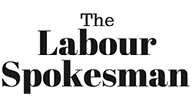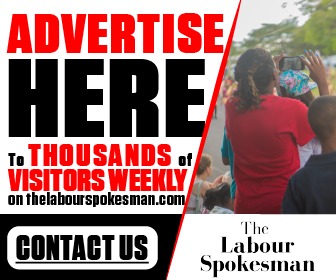By: BatumbaTak General Secretary, The St. Kitts-Nevis Trades & Labour Union
In the words of Rev. Dr. Martin Luther King, Jr., “The Labour Movement was the Principal force that transformed misery and despair into hope and progress. Out of its bold struggles, economic and social reform gave birth to unemployment Insurance, old age pensions, government relief for the destitute and, above all, new wage levels that meant not mere survival but a tolerable life. The captains of industry did not lead this transformation; they resisted it until they were overcome. When in the thirties the wave of Union Organization crested over the Nation, it carried to secure shores not only itself but the whole society.”
The International Labour Organization (ILO) just recently outlined its findings of the very latest research on the impact of stress in the workplace.
In addition, the relationship between workplace stress and poor mental health is also well established.
However, the International Labour Organisation’s (ILOs) Safety and Health at Work team surveyed the most recent studies on workplace stress from around the world.
Additionally, we found that work- related stress costs global society untold billions in direct and indirect costs annually, and that is quite apart from the human price paid in misery, suffering and even, according to some of the reports we looked at, suicide as well.
Nevertheless, let us continue by looking at the following:
- Growing Pressure At Work: We have been often told that we live increasingly stress full working lives, but exactly what does recent experience tells us?
Therefore let us begin with globalisation. It is said that global competitive processes have transformed work organisation, working relations and employment patterns, thereby contributing to the increase of work-related stress and its associated disorders.
In today’s world the pace of work is dictated by instant communications and high levels of global competition, the lines separating work from life are definitely becoming blurred more and more difficult to identify. It is fully believed that an appropriate balance between work and private life is difficult to achieve.
And the phenomenon is indeed global in its impact.
For instance, we note a recent study from Japan that found 32. 4 per cent of workers reported suffering from strong anxiety, worry and stress from work in the previous year.
However, in Chile, 2011 data shows 27. 9 per cent of workers and 13. 8 per cent of employers reported that stress and depression were present in their enterprises. In addition, similar figures were also found in practically every country that was considered for this type of report.
Also there is the hangover from the recent global economic crisis and recession that forced many enterprise to scale down their economic activities in order to remain competitive, causing an increase in restructuring, downsizing, merging, outsourcing and subcontracting, precarious work and a higher likelihood of massive layoffs of workers, unemployment, poverty and social exclusion, just to name a few.
It is a well-known and accepted fact that these working practices are a source of what is known in the field as “psychosocial hazards.” For within the workplace they contribute to increased competition, higher expectations as regards performance, fast-paced and intensive work, irregular and longer working hours, higher job demands and job insecurity, and a lack of control over the content and organization of work and reduced work opportunities.
Adding to that is the dreaded fear of losing their jobs, reduced motivation of staff, decreased satisfaction and creativity, and decreased financial stability and you end up with serious consequences for workers’ mental health and wellbeing, with a significant financial bottom line.
It is fully believed that these related direct and indirect costs are only beginning to be quantified. But still, some developed countries assess the economic impact of work-related stress, associated behavioural patterns and mental health disorders.
For example, in Europe it is said that the estimated cost of work-related depression cost about €617 billion a year, which includes the costs of employers of absenteeism and presenteeism (€272 billion), loss of productivity (€242 billion), health care costs (€63 billion) and social welfare costs in the form of disability benefit payments (€39 billion).
- Let us now look at Lifting The Burden: What measures can we take to reduce the heavy toll of workplace stress on our societies and business?
Below please find a few ideas that we fully believe can have a profound impact:
- Continued focus: Awareness on these issues is growing. In most countries policymakers and social partners have become more involved in creating interventions to tackle psychosocial hazards, which are the cause of work-related stress. In addition, social partners have been active, awareness raising campaigns have proliferated and many research networks and professionals associations have become involved.
- Prevention: It is the opinion of the health professionals that the protection of mental health at work will have more impact if it focuses on preventive strategies. In addition, they also say that it is very essential to handle the causes and the consequences of work-related stress with a combination of both collective and individual measures.
- Inclusion: It is fully believed that greater opportunities for participating in decision-making are associated with greater satisfaction and a higher feeling of self-esteem. However, in the long-term, even small amounts of autonomy in the execution of tasks are beneficial for the mental health and productivity of workers.
Moreover, participation in decision-making in the workplace moderates the effects of psychosocial hazards such as job demands and leads to reduced psychosocial strain.
- Management: A more comprehensive Occupation Safety and Health (OSH) management system would ensure improved practices and incorporation of health promotion measurers. In addition, this should include psychosocial risks in risk assessment and management measures with a very clear view to effectively managing their impact in the same way as with other Occupational Safety and Health (OSH) risks in the workplace. Please keep in mind though that workers’ participation in this process is crucial.
- OrganisationalCulture:The International Labour Organisation (ILO) experience shows the importance of the social environment in shaping work behaviors and valuing them; human resource policies play a role in ensuring working relationships based on trust, authenticity and partnership.
Finally, today workers all over the world are facing significant changes in work organization and labour relations; they are under greater pressure to meet the demands of modern working life. But for our health, wellbeing, and our livelihoods we must continue to work collectively to reduce the impact of stress in the workplace.
As time is of the utmost importance, we shall stop here for today but we will continue in a future article by looking at Stress: What It does To Your Health.
As I take my leave for today I leave you with a quote Amit Ray Om Chanting and Meditation and a stress song.
“If you want to conquer the anxiety of life, live in the moment, live in the breath.”Amit Ray, Om Chanting and Meditation.
Stress
You think your head’s achin’, I’m not finished yet,
I won’t be mistaken, how soon you forget,
Take back what you said and I’ll spare you pain,
Then you can spare me all your f…..’ lies,
I can’t wait to get away,
I ask you twenty more times,
Don’t you hear a thing?
Your testing my patience again,
Careful for your sake,
Take a walk with me there, and I’ll show you pain,
But who said you can open up your mouth,
I can’t wait to get away
Thoughts are pissed away,
And for a minute I couldn’t swallow,
Thoughts are pissed away,
And for a minute I couldn’t swallow,
If you think that I’m the one who’ll be here,
Come tomorrow think again,
In time I’ll be here, Not waiting for you anymore,
I love you anyway, is it so rare that I’ve been,
Sleeping with the dead.



